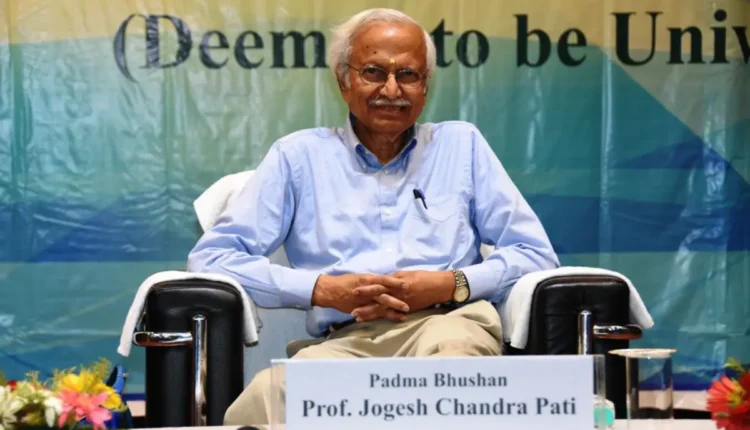Jogesh Pati :- In the realm of theoretical physics, there are luminaries whose work transcends generations, leaving an indelible mark on the landscape of human knowledge. Jogesh Pati, born in 1937, stands tall among such giants. His journey from humble beginnings to international acclaim is a testament to the power of dedication, intellect, and vision.
Jogesh Pati’s Early Years and Education
Jogesh Pati’s academic odyssey commenced in the classrooms of Guru Training School, Baripada, where he laid the foundation for his future endeavors. His thirst for knowledge led him to M.K.C High School and later to MPC College, where he pursued his passion for science. Graduating with flying colors, he embarked on a trajectory of higher learning that would shape the course of his life.
Pati’s academic prowess saw him earn a B.Sc. from Ravenshaw College, Utkal University, followed by an M.Sc. from Delhi University. However, it was his doctoral journey at the University of Maryland, College Park, culminating in a Ph.D. in 1961, that set the stage for his illustrious career in theoretical physics.
Pioneering Contributions to Particle Physics
At the heart of Pati’s scholarly endeavors lies the quest for unification – the elusive pursuit of a theory that could reconcile the fundamental forces governing the universe. Collaborating with Nobel Laureate Abdus Salam, Pati formulated the original gauge theory of quark-lepton unification, laying the groundwork for modern particle physics.
Their seminal work on the Pati-Salam model proposed the symmetry of SU(4)-color, left-right symmetry, and the existence of right-handed neutrinos, offering profound insights into the masses and oscillations of neutrinos. This paradigm-shifting theory not only illuminated the interconnectedness of fundamental forces but also predicted the eventual decay of the proton, a cornerstone of particle physics.
The Quest for Unity and Beauty
In his pursuit of scientific truth, Jogesh Pati espoused a philosophy of unity in diversity, recognizing the interconnectedness of disparate phenomena. His belief in the inherent beauty and simplicity of the universe fueled his relentless quest for understanding, inspiring generations of physicists to delve deeper into the mysteries of nature.
Impact and Recognition
Jogesh Pati’s contributions to theoretical physics have earned him global recognition and accolades. In 2000, he was honored with the Dirac Medal for his seminal contributions to the quest for unification, alongside Howard Georgi and Helen Quinn.
The prestigious Padma Bhushan, India’s third-highest civilian award, was bestowed upon him in 2013, recognizing his extraordinary contributions to science and society.
Also Read :-Khem Shahani: A Journey Through Probiotic Pioneering

